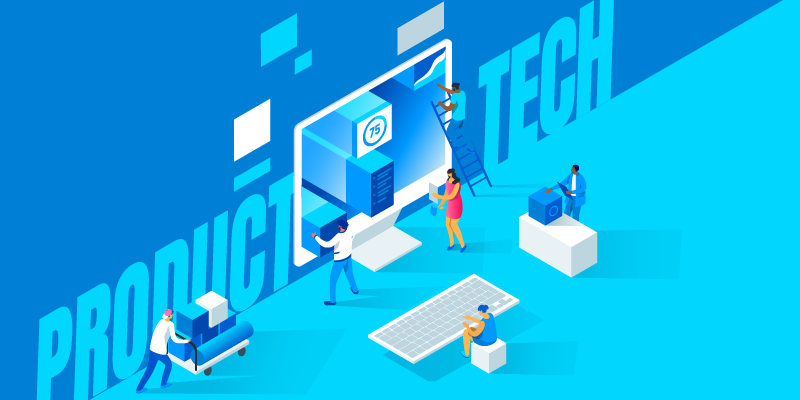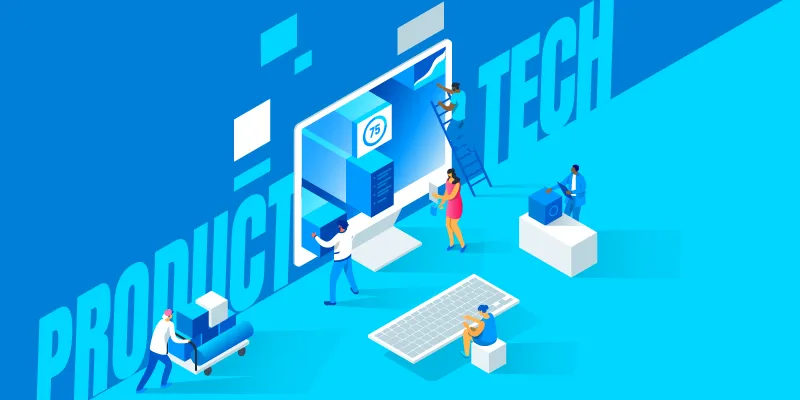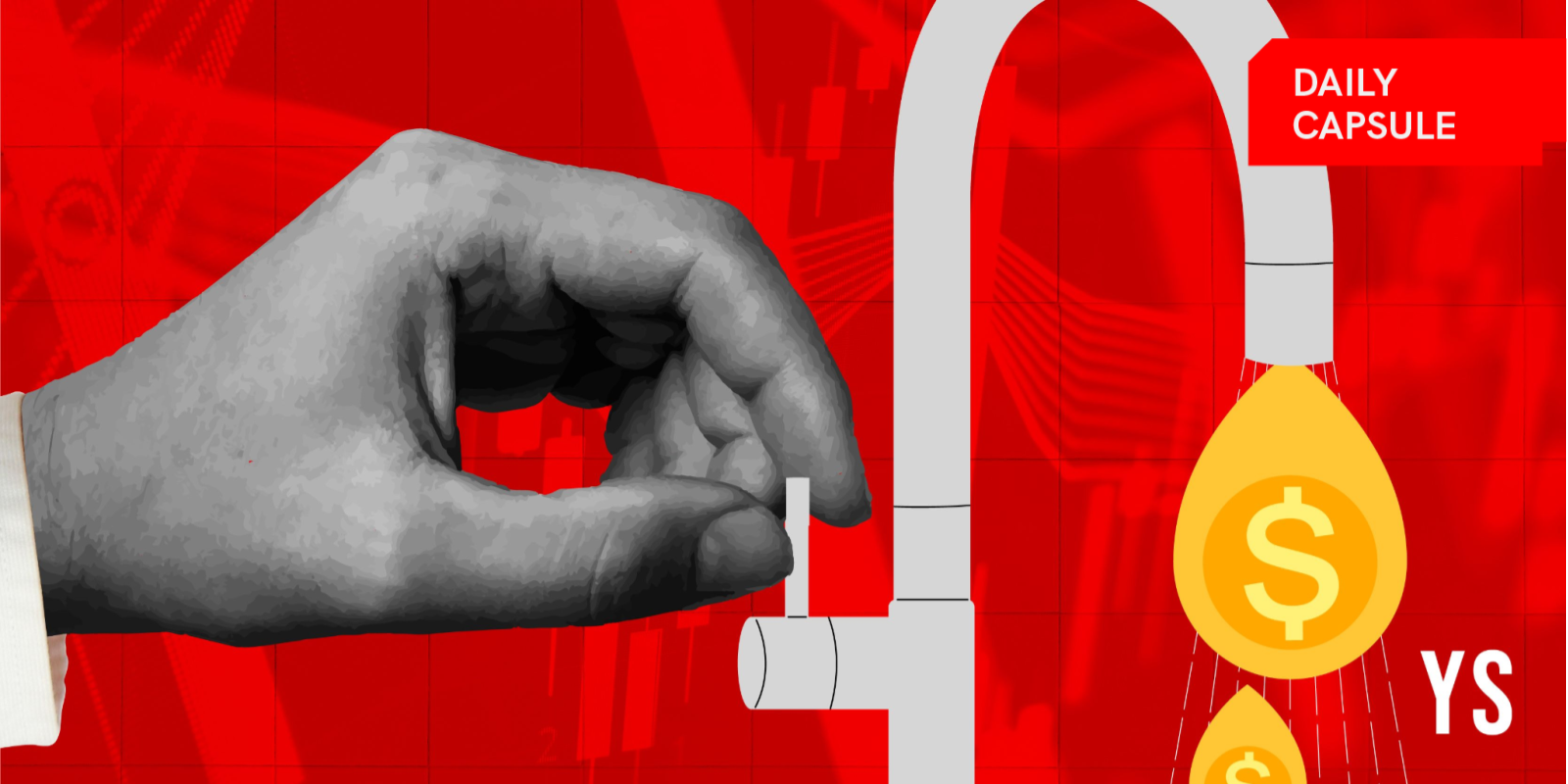Experts reveal the key to building digital products for SMEs and capturing an $85B market
In a June 2020 report on Improving Economic Dynamism and Accelerating MSME growth, simplifying business through digitisation was a key recommendation by GAME.
Bhavya Kaushal

Tuesday August 11, 2020 , 8 min Read
Over the last few months, the conversation around SMEs has grown like never before. India has over 70 million MSMEs, which contribute almost 30 percent of the country’s GDP, and have created 11 crore jobs so far.

Why do SMEs matter?
“MSMEs matter because they move India forward and are the backbone of the Indian economy,” said Puneet Chandok, President – India and South Asia, Amazon Web Services, during the India Internet Day conference, hosted by TiE Delhi.
While MSMEs are known for stability and generating consistent revenues, they were hesitant to adopt any technology. Before the COVID-19 pandemic, there was already some momentum among traditional businesses in embracing digital payments and accounting solutions, but the subsequent lockdown and the financial impact on them accelerated their need for digital transformation in the medium term.
“Due to COVID-19, we are seeing SMEs adopt technology at a pace never seen before. Digitisation has become a necessity and a question of survival. In several sectors such as manufacturing, retail, etc., we have never seen this speed of adoption,” Puneet said, adding that tech startups can contribute immensely to the MSME sector as India is one of the largest markets in the world that has several unmet technological needs.
The opportunity for digitisation is very large in India. A 2019 Zinnov report had estimated the total digital opportunity offered by Indian MSMEs will grow from around $30 billion in 2019 to $85 billion in 2024. The real opportunity could, in fact, be much bigger in the wake of the COVID-19 pandemic, accelerating digital transformation for the SMEs.
This is a giant opportunity for both startups and MSMEs, and a win-win situation for both.
Simplicity is the key
Several startups and large corporations are capitalising on this unique opportunity. Startups such as , , and have made significant in-roads in building accounting software for small businesses. Established players such as Tally, Intuit, and have also been in the game for some time now.
The key to acquiring SME users at scale lies in the simplicity of the product. However, this code is something only some players have cracked. Bengaluru-based Sumit Agarwal (35) is one such entrepreneur.
When Sumit was working for ’s QuickBooks, he decided to set out on his own to provide simplified SME solutions for accounting and inventory management. In 2016, with Rs 8 lakhs savings, he started Vyapar.
“By using Vyapar, an entrepreneur can stay on top of his/her finances, collect payments on time, keep track of inventory, generate GST reports, and make smarter business decisions,” Sumit told SMBStory.
Vyapar seems to have fully internalised the concept of simplicity, and executed it in its product. The app does not have ‘credit’ or ‘debit’ sections, as Sumit believes most MSME owners have little to no knowledge of accounting terms. The app classifies a transaction as income or expense on its own.
“Most MSME owners are either Class 12 pass or are graduates, at maximum. So we had to make our product as simple as possible. We also gave users the option to use the app offline or online, as not everyone is comfortable putting their data online. The mindset towards digital solutions is changing, and our business has bounced back higher after a dip due to the lockdown,” Sumit said.
Vyapar recorded more than one million app downloads and has a rating of 4.7 on the Google Play Store. Its focus on simplicity has generated interest across the industry. In September 2019, B2B ecommerce firm IndiaMART announced an investment of Rs 36 crore (about $5.4 million) in Vyapar. Existing investors India Quotient and Axilor also participated in the Series A investment round.
Further, other startups like OkCredit and KhataBook are also solving problems at ground level.
OkCredit founders Harsh Pokharna, Gaurav Kumar, and Aditya Prasad sat with the owner of a local department store Food Choice to understand his challenges and build the OkCredit app. The startup’s mission is to provide SMEs with a digital-based credit balance recording solution.
The Bengaluru-based startup raised $83 million in funding between June and September 2019, flaunting the likes of Tiger Global and Lightspeed (India and the US), as investors. “SMBs need a digital ramp,” Harsh said.
Preetam, the owner of Sunilala Ambalal stores in Mumbai, has been using OkCredit for some time now. According to him, taking payments was a big problem initially. “Technology has streamlined the process of taking payments,” he said.
KhataBook was started when serial entrepreneur Ravish Naresh, Co-founder of real estate search portal Housing.com and AI-powered SMS Inbox Kyte, came across developer Vaibhav Kalpe’s business accounting app.
Vaibhav had built the app after seeing his father face challenges in recording his electrical shop’s receivables. Naresh acqui-hired Vaibhav and his team, and launched KhataBook in 2016 — an app that leverages the trend of increased smartphone use in merchants — by becoming the first business accounting software they've used.
With over eight million active merchants on the app, KhataBook impressed investors with its product suite for addressing critical pain-points of merchants across credit tracking, revenue leakage, and collections.
In May 2020, it closed a $60 million Series B round of funding led by B Capital Group. The round also saw participation from new and existing investors, including Sequoia India, Partners of DST Global, Tencent, GGV, RTP Global, Hummingbird Ventures, Falcon Edge Capital, Rocketship.vc, and Unilever Ventures.
At the time, Ravish said Khatabook is “playing an important role in the digitisation of MSMEs, helping to increase their incomes, and making them more efficient and competitive.”
Indian unicorn has also played a big role in bringing the world of small and medium businesses closer.
“Earlier we used to purchase raw materials on our own. It used to be a very tedious process. Now, we buy everything from Udaan,” said Syed Mujbulla, Owner of GP Singapore, a mobile phone dealer from Coimbatore. He added that going digital has helped him serve his customers better.
Piyush Nandawat, Owner of Bengaluru-based MSME Namo Creations, said that suppliers and partners who are unable to reach out to them directly contact them through Udaan.
Digitisation is the key to the revival of SMEs
In a June 2020 report on Improving Economic Dynamism and Accelerating MSME growth, simplifying business through digitisation was a key recommendation by the Global Alliance for Mass Entrepreneurship (GAME).
The report proposed that to revive MSMEs, India needs to digitise and streamline processes in order to enable a reduction in timelines, decrease parallelisation, and ease formalisation by creating six key platforms. These platforms are labour compliance, EHS fillings, tax filings, information wizard, central inspection system, and single window for starting a new business.
According to GAME, starting a new business takes up to three months, procuring construction permits takes six months, and registering property takes two months. While completing these multi-step processes, entrepreneurs are faced with several challenges.
These include a lack of singular source for MSME information, too many portals for different government and regulatory processes, lack of parallelisation (entrepreneurs can only complete registration after getting the previous one), lack of transparency, and more.
GAME advocates these challenges can be effectively addressed by digitising processes for SMEs. Although larger players have the scale and deeper pockets to build products for digitisation, it is the newer entrants that are catching attention.
“Some enterprise solutions offered by large brands are more suited for big enterprises. MSMEs find such solutions unwieldy and expensive. Some players also don’t offer an end-to-end business process solution,” said Logesh Velusamy, Founder of , a Coimbatore-based SaaS startup, which has over 30,000 users and 250 MSME clients.
“Our competitor’s solutions require customers to onboard a partner to customise the solution to suit them, while ours has a zero-code customisation platform,” he added.
According to Amazon Web Services’ Puneet, there are five key things to keep in mind while building products for SMEs. “SMEs want easy, plug-and-play solutions. To build for them, you need to sacrifice adding new features and complexities. Only build for essentials,” he added.
His second point is building for India, and not blindly importing solutions from another country. He believes solving Indian SME problems requires engineers to spend time on the ground here. “You have to be in this market if you are building for this market,” he said.
Coming to the pricing, Puneet recommended that SME products should be priced based on what the customer can actually pay. “Work backward to figure out what the SME can pay. Personally, I think an SME can pay Rs 500 to Rs 750 per user per month. It’s important to consider this for monetising and scaling a product,” he said.
His fourth and fifth points touched upon offering bundles, trials, and customer support for the SME products being retailed.
“Easy-to-try bundles and a human touch for customer support can drive tremendous adoption. SMEs want one person who they can directly call in case of any query with the product. Companies should not be shy to offer this to SMEs,” he said.
India has risen to the 63rd rank (out of 190 countries) on the Ease of Doing Business index. For many years, complex processes, compliance burdens, and setting up of manufacturing units have been a bottleneck for the growth and formalisation of MSMEs.
Although simplicity and cutting down on new features seems counterintuitive, it remains the way to go for companies building products for SMEs.
Edited by Suman Singh












